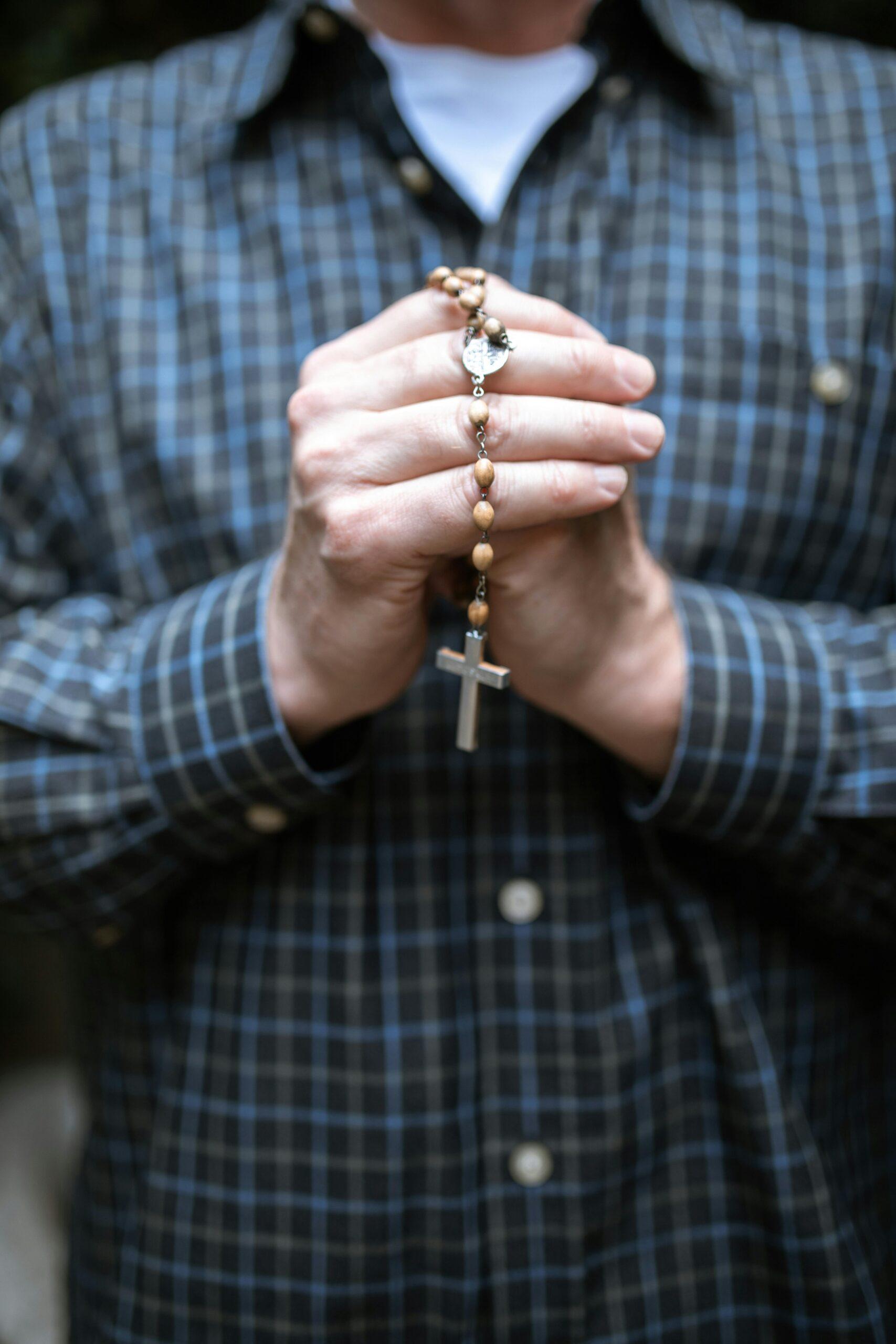In the arena of prayer, our faith is unveiled, and we see where we truly are in our relationship with God. It can be disturbing, but also compelling. By seeing where our faith is, we can be pushed to greater faith and trust in God.
When our faith is exposed, we also see how we’re approaching and using prayer. Such an awareness can be unsettling as we realize how little we have trusted God and how much we have attempted to manipulate him.
As our faith matures, so does our understanding of prayer. Faith demands some answers to pressing questions, especially about prayer.
The Catechism of the Catholic Church asks us: “Are we convinced that ‘we do not know how to pray as we ought’? Are we asking God for ‘what is good for us’?”
With faith, we can humble ourselves, acknowledge that we do not know how to pray, declare our trust in God, and commend ourselves and our petitions to him. We can honestly say to him, “Lord, you know all things. You know what is good. I place my petitions before you. Please do with them whatever is the most good. I trust in you. Help me.”
By praying in such a way, we show our confidence in God. We also see the freedom that his love has given to us.
The Catechism teaches us: “Our Father knows what we need before we ask him, but he awaits our petition because the dignity of his children lies in their freedom. We must pray, then, with his Spirit of freedom, to be able truly to know what he wants.”
We are called to offer up our petitions to God. As our heavenly Father, he wants to hear from us. Although he knows all things, he wants us to exercise our freedom and turn to him.
Many times, our petitions are for good things, such as the health of family members, reconciliation with a loved one, and peace in our world. But at other times, our prayer is motivated by greed, pride, or some other sinful motivation. In such an instance, God will not be fooled nor manipulated. He knows our hearts. In such a situation, he will answer our petition in a way that brings correction or discipline.
Quoting the Letter of James in the New Testament, the Catechism explains: “’You ask and do not receive, because you ask wrongly, to spend it on your passions.’ If we ask with a divided heart, we are ‘adulterers’; God cannot answer us, for he desires our well-being, our life. ‘Or do you suppose that it is in vain that the scripture says, ‘He yearns jealously over the spirit which he has made to dwell in us?’”
This can be a difficult lesson to receive, but it is one that is meant to help us and reorient our prayer (and our lives) to God, who loves us and wants us to have lives of transparency and integrity.
God wants us to know love, true love, and not a selfishness that disguises itself as love or a pride that parades itself as love. Love is about dying to ourselves and seeing the good in the other. By accepting the discipline of God, we learn authentic love. This includes not only a love for God, but also for those around us.
A true love is marked by a jealousy that surrenders our heart to another. It is this notion of jealousy that we find in the Sacred Scriptures. The Catechism explains: “That our God is ‘jealous’ for us is the sign of how true his love is.”
By realizing this jealous love of God for us, we can trust him more and follow in the way of his Spirit, as the Catechism teaches: “If we enter into the desire of his Spirit, we shall be heard.”
After making these points about prayer, the Catechism quotes the holy ones: “Do not be troubled if you do not immediately receive from God what you ask him; for he desires to do something even greater for you, while you cling to him in prayer,” and “God wills that our desire should be exercised in prayer, that we may be able to receive what he is prepared to give.”
The waiting we experience in prayer is a part of the answer. We can wait for God and have confidence in him. If God does not answer our petition in the way we asked, we know that he will answer it in a far greater way. This is the trust that we have when our faith and life of prayer have grown and matured within a relationship with God.
For spiritual help and resources on prayer, visit Daily Discipleship with Father Kirby.













